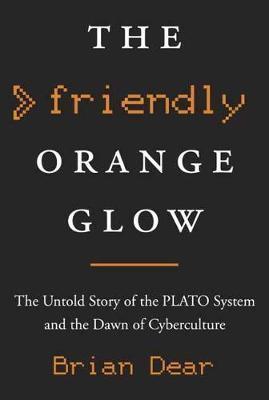Kian Ryan reviewed The Friendly Orange Glow by Brian Dear
A piece of computing history that you may be unaware of
4 stars
Following the PLATO education project from it's genesis in the 1960s through to it's demise in 2015, "The Friendly Orange Glow" follows the people who developed, and used the system in it's various guises.
PLATO is a completely different take on computing compared to the work that was going on at Silicon Valley during the 1970s, with different audiences, different goals and ultimately different hardware. Those motivations brought some innovations that wouldn't appear again arguably for a few decades - touchscreen driven input, high resolution displays, notesfiles, multi-user games, real time chat. Many of these functions were built by the community that grew around the system.
The book goes to great length to detail the story of the people at the heart of the project, such as Donald Blitzer and users of the system, such as Brodie Lockard who was paralysed after a gymnastics accident and went on to author …
Following the PLATO education project from it's genesis in the 1960s through to it's demise in 2015, "The Friendly Orange Glow" follows the people who developed, and used the system in it's various guises.
PLATO is a completely different take on computing compared to the work that was going on at Silicon Valley during the 1970s, with different audiences, different goals and ultimately different hardware. Those motivations brought some innovations that wouldn't appear again arguably for a few decades - touchscreen driven input, high resolution displays, notesfiles, multi-user games, real time chat. Many of these functions were built by the community that grew around the system.
The book goes to great length to detail the story of the people at the heart of the project, such as Donald Blitzer and users of the system, such as Brodie Lockard who was paralysed after a gymnastics accident and went on to author Shanghai for the Macintosh.
The book takes time to discuss the politics at the educational institutions involved, and the attempts to commercialse the project, the successes and failures. It follows it through the various incarnations to being finally turned off with a handful of users in 2015.
A good read, and if you've read histories of Silicon Valley or the UK micro scene, this adds a very different perspective.


